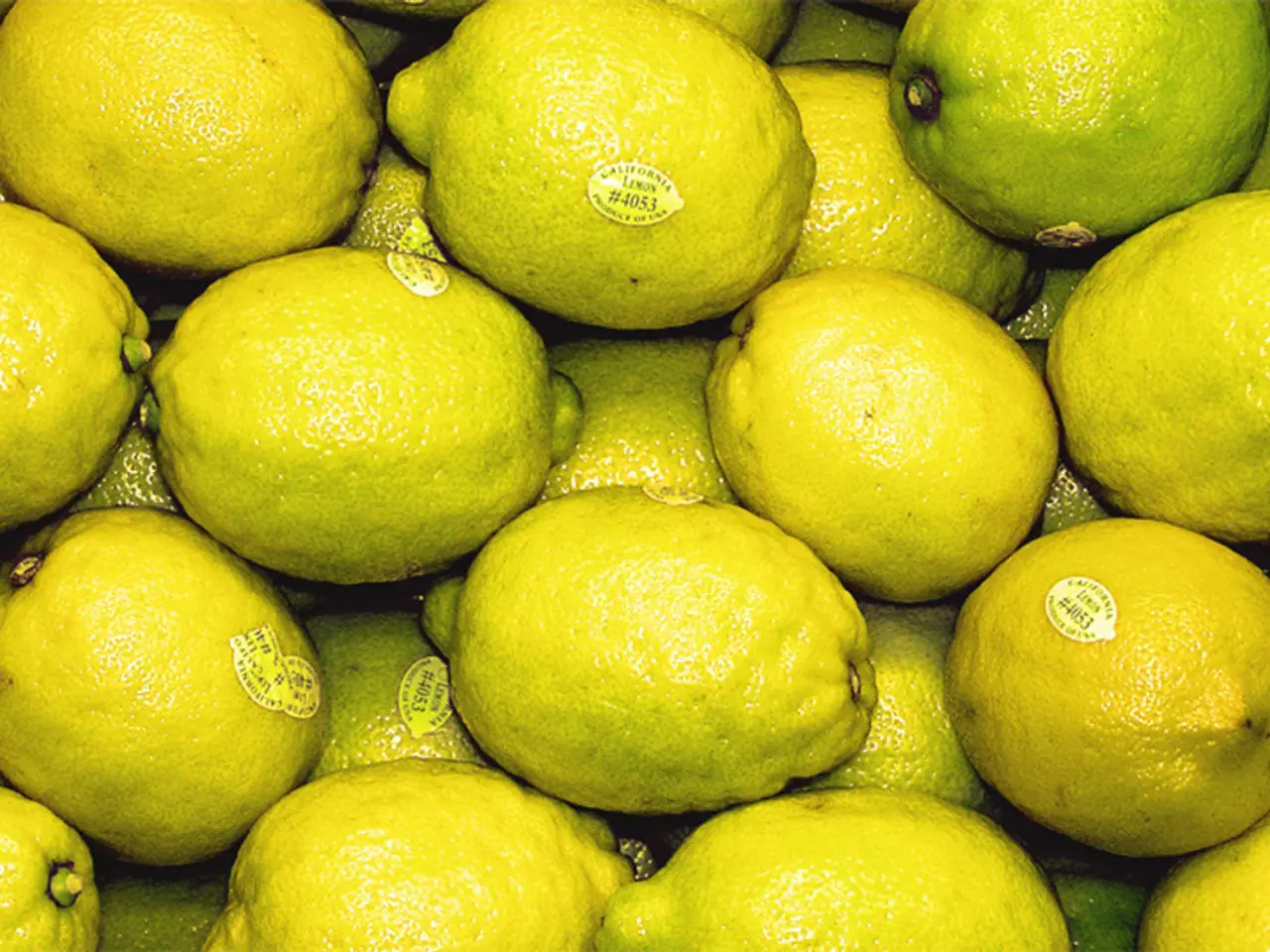International uncertainty sparks citrus sector's focus on the G20 summit
South Africa's Citrus Industry Faces Challenges but Pursues Growth at G20 Summit
The South African citrus industry is grappling with potential job losses and supply chain disruptions due to the imposition of US tariffs, a situation that could affect up to 30,000 jobs [3][4][5]. The tariffs, amounting to 30%, are expected to devastate the export industry, with exports to the US accounting for 4% of the total [2][4][1].
The Citrus Growers' Association (CGA) is, however, not sitting idle. They are leveraging South Africa's hosting of the G20 summit to counteract these measures and broaden market access for fresh produce [4]. The CGA is collaborating closely with South African government departments, embassies, and international citrus forums to fast-track negotiations and close the loop between industry and diplomacy.
The US tariffs pose a severe economic threat, not just to the citrus sector, but also to sectors that have historically benefited from duty-free access under AGOA. The impact is particularly felt in rural communities in the Western and Northern Cape, where towns like Citrusdal rely heavily on citrus exports [1].
In response to the tariffs, the South African government and industry stakeholders are employing diplomatic efforts to seek resolution. They emphasise the complementary nature of South African exports to US industries, the non-competitive (counter-seasonal) timing of citrus production, and the benefits to US consumers who rely on stable supply to offset their own production challenges [2].
Key diplomatic arguments include:
- South African exports do not threaten US producers but rather support US industrial supply chains.
- Removing or reducing tariffs aligns with mutual economic interests and job preservation on both sides.
- South Africa, as a significant investor in the US, seeks to maintain and enhance its trade relations through dialogue during such international forums as the G20 summit [2].
The CGA also plans to host sidebar meetings with ministers from 19 countries during the G20 summit to discuss sector-specific pain points and negotiate bilateral market access improvements [4].
The South African citrus industry is on a growth trajectory, with exports projected to increase significantly in the coming years. By 2032, the industry is expected to export about 260 million 15kg cartons of citrus, a potential to create 100,000 jobs [6]. The industry has already seen a significant increase in exports to the US since 2017, with 35,000 jobs connected to US-SA citrus exports [7].
However, the 30% reciprocal US export tariff could impact the growth trajectory of the South African citrus industry. The development of new markets in the citrus industry can take up to 15 years due to the need for pest risk assessments and strict sanitary and phytosanitary standards [8].
To mitigate these challenges, the CGA is focusing on strategic pricing and market diversification. They have appointed representatives in major export markets and are expanding their focus to include South East Asian countries, India, South Korea, and Japan [8]. The industry's success and growth are crucial in tackling South Africa's rising unemployment [9].
In conclusion, the South African citrus industry is facing significant challenges due to US tariffs, but they are using the G20 summit as an opportunity to negotiate relief and broaden market access. Exporters are also considering strategic pricing and market diversification to mitigate tariff impacts. The industry's growth and success are vital for South Africa's economy and employment.
The South African government and industry stakeholders are utilizing the G20 summit as an opportunity to counteract US tariffs, not only for the citrus industry but also for sectors that have historically benefited from duty-free access, as these tariffs could have a ripple effect on the broader economy, particularly affecting rural communities.
In the face of potential job losses and supply chain disruptions caused by tariffs, the South African citrus industry is looking beyond the US market, focusing on strategic pricing and market diversification to Southeast Asian countries, India, South Korea, and Japan to ensure its growth and success, essential for South Africa's economy and employment.








